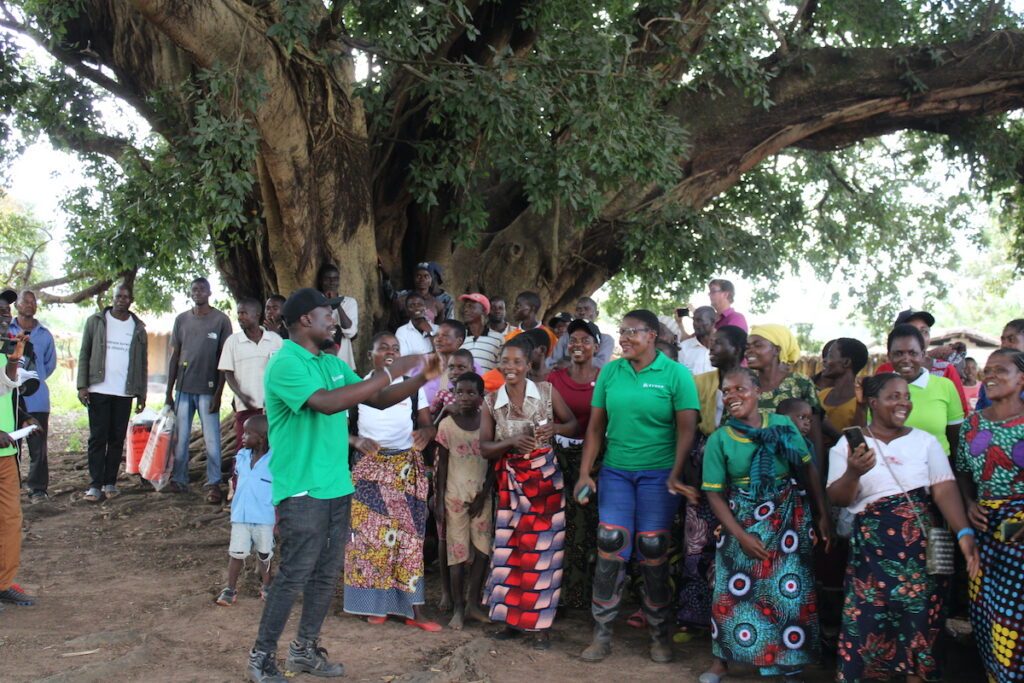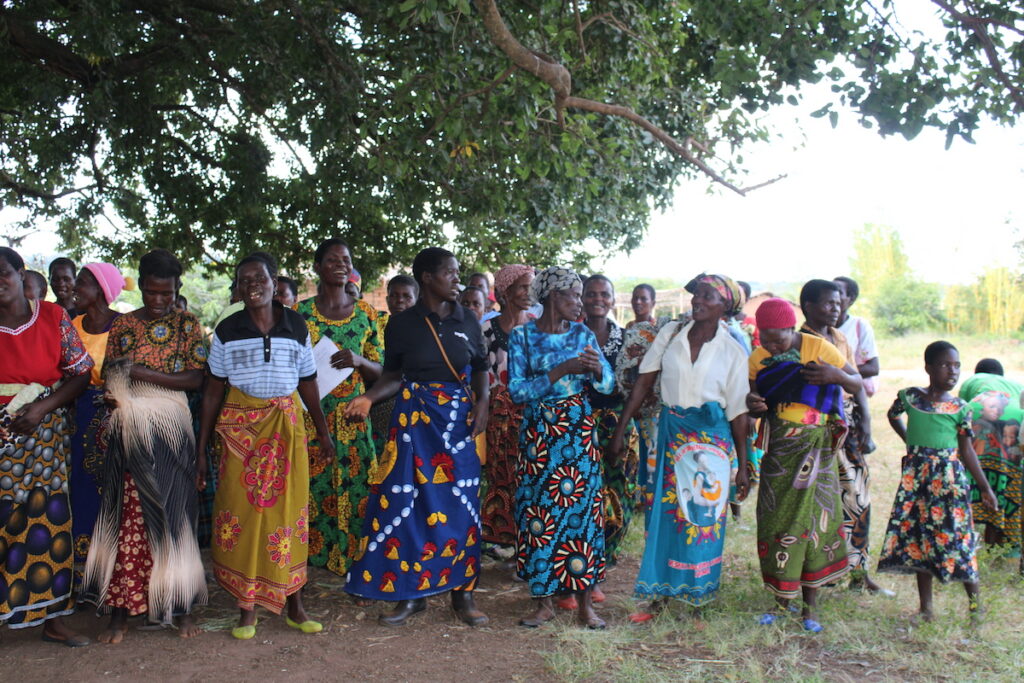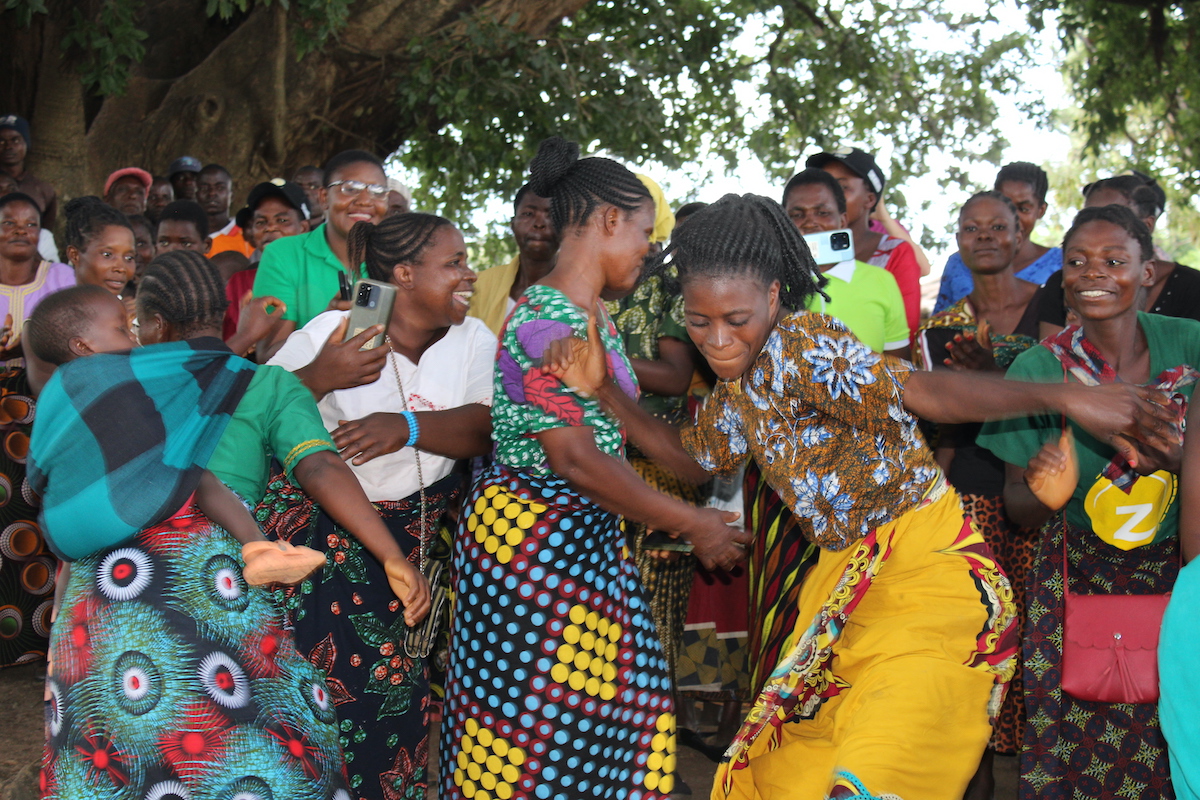Participants in Solidaridad programmes celebrate in Malawi.
At the close of Women’s Month in South Africa, Solidaridad Southern Africa reaffirmed its commitment to women throughout the region. Advocating for women’s inclusion and fighting gender bias are crucial steps to ensure the success of sustainable development programmes.
In Malawi’s tea sector, a groundbreaking Gender Equality, Sexual Harassment and Discrimination policy was launched to promote gender equality and combat sexual harassment. With support from the International Labour Organization (ILO), Solidaridad and its partner, the Tea Association of Malawi, Ltd. (TAML), aims to create safer and more equitable workplaces for all tea sector employees.
“The initiative comes amidst growing recognition of the pervasive issue of sexual harassment in agricultural sectors globally, including tea farming in Malawi. The new gender policy is designed not only to address existing challenges but also to prevent future instances through proactive measures and advocacy,” says Precious Greehy, Head of Gender and Youth at Solidaridad Southern Africa and quoted in Retail Brief Africa.

According to Greehy, even though South Africa’s Women’s Month serves as an important reminder of progress made, it highlights the work that still needs to be done. She asserts that gender equality must be at the forefront of Solidaridad’s efforts throughout the year.
The new project is focused on the dissemination of an anti-sexual harassment training manual and the creation of a team of gender champions.
Gender champions will serve as advocates and catalysts for change within their respective tea estates. These champions, selected from diverse backgrounds within the sector, will promote gender awareness, foster dialogue, and ensure the effective implementation of gender-sensitive practices.
“The role of gender champions is crucial in driving forward our commitment to creating inclusive and respectful workplaces. They are pivotal in advocating for gender equality, offering support to victims and holding perpetrators accountable,” said Nozipho Ndlovu, Regional Programme Manager for Solidaridad Southern Africa to 247 Malawi.
A cornerstone of the initiative is the development and dissemination of an anti-sexual harassment training manual.
The training manual represents a significant step towards fostering a workplace environment where everyone feels safe, respected and valued.
Precious Greehy, Head of Gender and Youth at Solidaridad Southern Africa
This comprehensive resource will provide practical guidance on identifying, reporting and addressing incidents of sexual harassment. Its goal is to cultivate a work-place culture with knowledgeable and confident employees who have zero tolerance for harassment.
“Beyond immediate impacts, stakeholders envision the Malawi tea sector’s gender policy and associated initiatives as an example of best practice. It sets a precedent for other agricultural sectors to follow, demonstrating how proactive gender policies can effectively combat workplace inequalities and foster a more inclusive industry,” says Ndlovu.
“Through collaboration, advocacy, and steadfast commitment, the sector is paving the way for a future where all individuals, regardless of gender, thrive in dignified and respectful workplaces,” she concludes.

The gender-based initiative underscores Malawi’s commitment to its sustainable development goals. It also serves as a testament to the power of collective action to create lasting social change.
Solidaridad strives to contribute to an enabling policy environment that echoes the voices of people, while bringing civil society into the decision-making process in order to create sustainable supply chains.
“By equipping employees with the tools to recognize and respond to sexual harassment, we aim to create lasting change that permeates throughout the entire tea sector,” Greehy adds.

